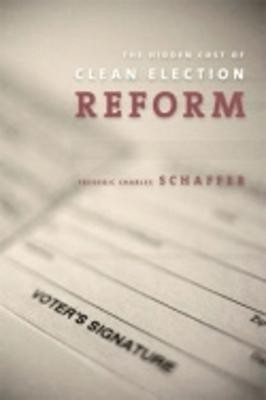The Hidden Costs of Clean Election Reform(English, Hardcover, Schaffer Frederic Charles)
Quick Overview
Product Price Comparison
American voters are increasingly aware that the mechanics of elections matter. The conduct of elections-how eligible voters make it onto the voter rolls, how voters cast their ballots, and how those votes are counted-determines the degree to which the people's preferences are expressed freely, weighed equally, and recorded accurately. It is not surprising, then, that attempts to "clean up" elections are widely applauded as being unambiguously good for democracy. In The Hidden Costs of Clean Election Reform Frederic Charles Schaffer reveals how tinkering with the electoral process can easily damage democratic ideals. Drawing on both recent and historical evidence from the United States and countries around the world, including the Philippines (where Schaffer has served as an election observer), Venezuela, South Africa, and Taiwan, The Hidden Costs of Clean Election Reform investigates why citizens sometimes find themselves abruptly disenfranchised. Schaffer examines numerous incidents in which election reforms have, whether intentionally or accidentally, harmed the quality and experience of democracy. These cases include the introduction of secret balloting in 1890s Arkansas, which deliberately stripped black citizens of the power to vote; efforts to insulate voters from outside influences in nineteenth-century France; the purge of supposed felons from the voter rolls of Florida ahead of the 2000 presidential election; and current debates over the reliability and security of touch-screen voting machines. Lawmakers, election officials, partisan operatives, and civic educators, Schaffer finds, can all contribute to the harm caused by improperly or cynically constructed election reforms. By understanding how even good-faith efforts to improve corrupt or flawed electoral practices may impede the democratic process, The Hidden Costs of Clean Election Reform suggests new ways to help prevent future breaches of democracy.


